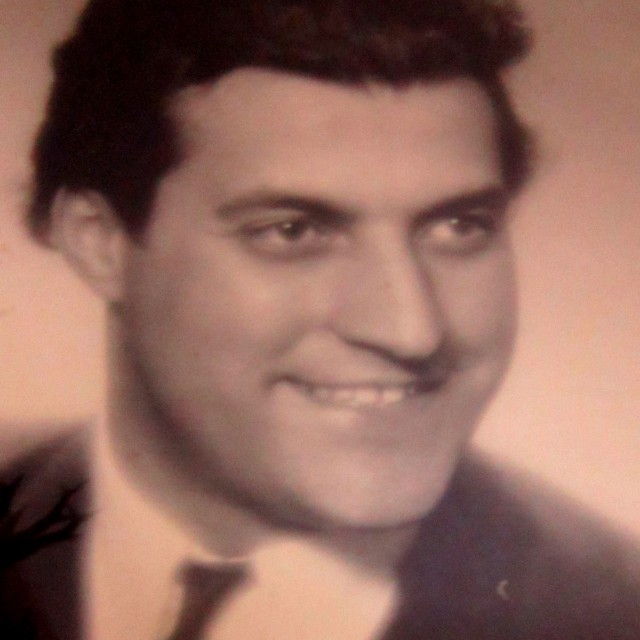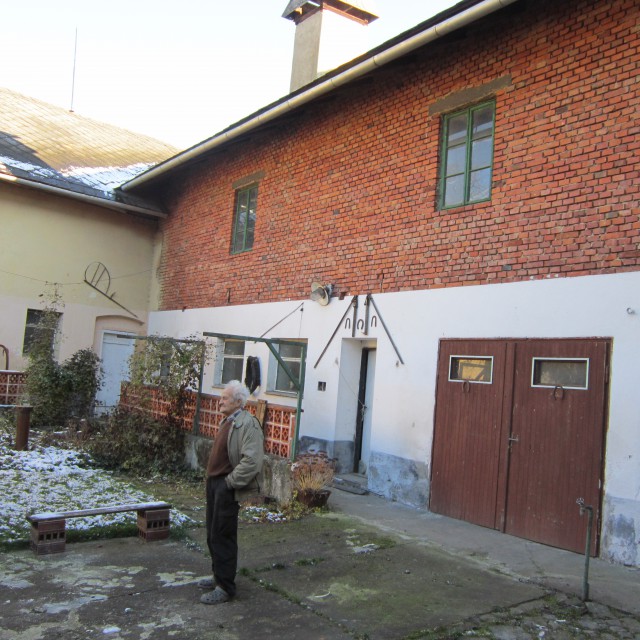He confiscated a pig and got slapped
In the early 1950s, Jan Sklenář took over the family farm from his father in Vacanovice. At that time, the collectivization of the peasantry had just begun, determined by the Soviet model, and the communist officials tried to coerce him to join the local collective farm. However, Jan refused and thus he faced reprisals: his agricultural machines were confiscated, he was obliged to yield disproportionately high deliveries of agricultural products and his own fields were swapped for fields of a far inferior quality. He requested a reappraisal of his actual crop yield in order to bring down the excessive delivery quotas. "In the autumn, a plenipotentiary came to reappraise my harvest yield to determine the delivery quotas to the state. He found out that we had a pig weighing about 100 kg and that we hadn't delivered the mandatory 140 or 160 kg of meat. So he confiscated the pig", recalls Jan Sklenář, who was not even at home when the official confiscated the pig and only met him face to face later on, at the national committee. "I told him that I had met my delivery quotas. I told him that I had the right to keep the pig as a self-supplier to supply my family. He didn't answer me and continued to write the assessment. I got mad, grabbed him by the neck and gave him a slap. The secretary, who sat on the opposite side, tore us apart and the plenipotentiary called the police. They interrogated me until the morning and labelled me as a kulak. They charged me with non-compliance with the delivery quotas and assault on a public servant. In court, they tried me on three counts: insult and assault on a public official and the obstruction of official power", says Jan Sklenář, who eventually was able to walk away with only a conditional sentence thanks to his friendship with the judge.
Hodnocení
Abyste mohli hodnotit musíte se přihlásit!
Trasy
Příběh není součastí žádné trasy.
Komentáře

Jan Sklenář
Ing. Jan Sklenář was born in 1922 in Vacanovice in the Olomouc region in the family of the second largest farmer in the village. Shortly after the occupation of Bohemia and Moravia by the Nazi Germany, the family hid a large supply of weapons from the resistance organization Defense of the Nation on their farm in July 1939. After the hiding place had been discovered, his father Jan Sklenář was arrested in 1943 and threatened with death penalty. It was only thanks to the help of his friends and the initiative of the German state prosecutor Roland Jarosch that he was eventually sentenced "only" to six years of imprisonment. His son Jan Sklenář Jr. was likewise suspected of collaboration with the resistance, and he was interrogated by the Gestapo in Olomouc several times. His father not only survived the prison, but he also endured the death march at the end of the war, and after several months of medical treatment he was able to return home. Jan Sklenář Jr. took over the prospering farm in 1950. The communist regime already began with the collectivization of village farms at that time. Jan Sklenář refused to join the agricultural cooperative and he suffered harassment from local officials. In a conflict situation, Jan attacked a deputy of the ministry of purchasing, and he was consequently brought to trial. His connections eventually helped him and he was thus released with a two-month suspended sentence, but he had no choice but to join the Unified Agricultural cooperative (JZD). As a so-called kulak he was forced to terminate his long-distance study at the college of agriculture. Local officials knew of his expertise, and when the cooperative was on the brink of bankruptcy, they appointed him as an agronomist. Jan Sklenář accepted the position under the condition that he would be allowed to finish his studies. He proved successful in his job and three years later he became the chairman of the cooperative. He still lives on his native farm.




